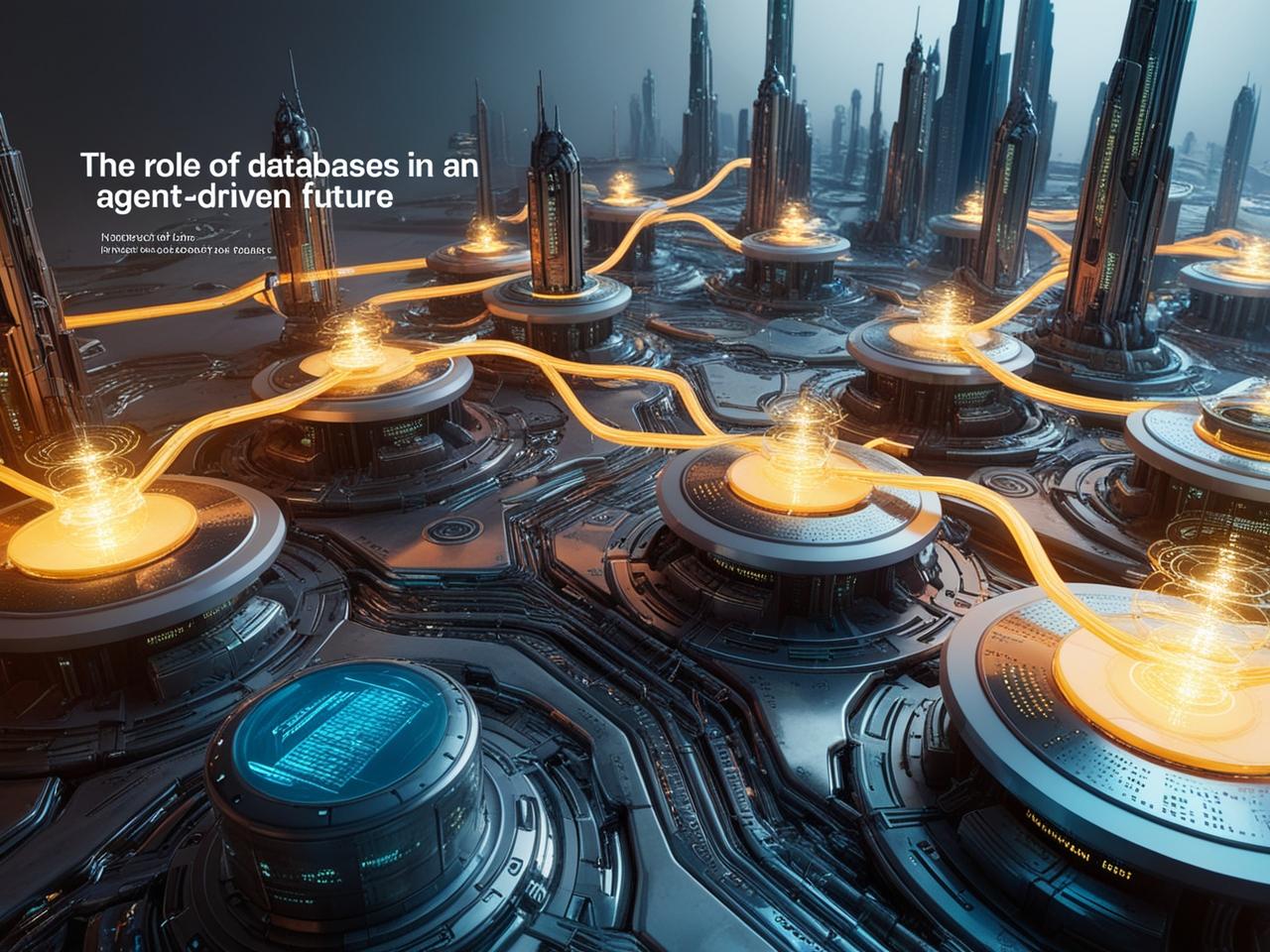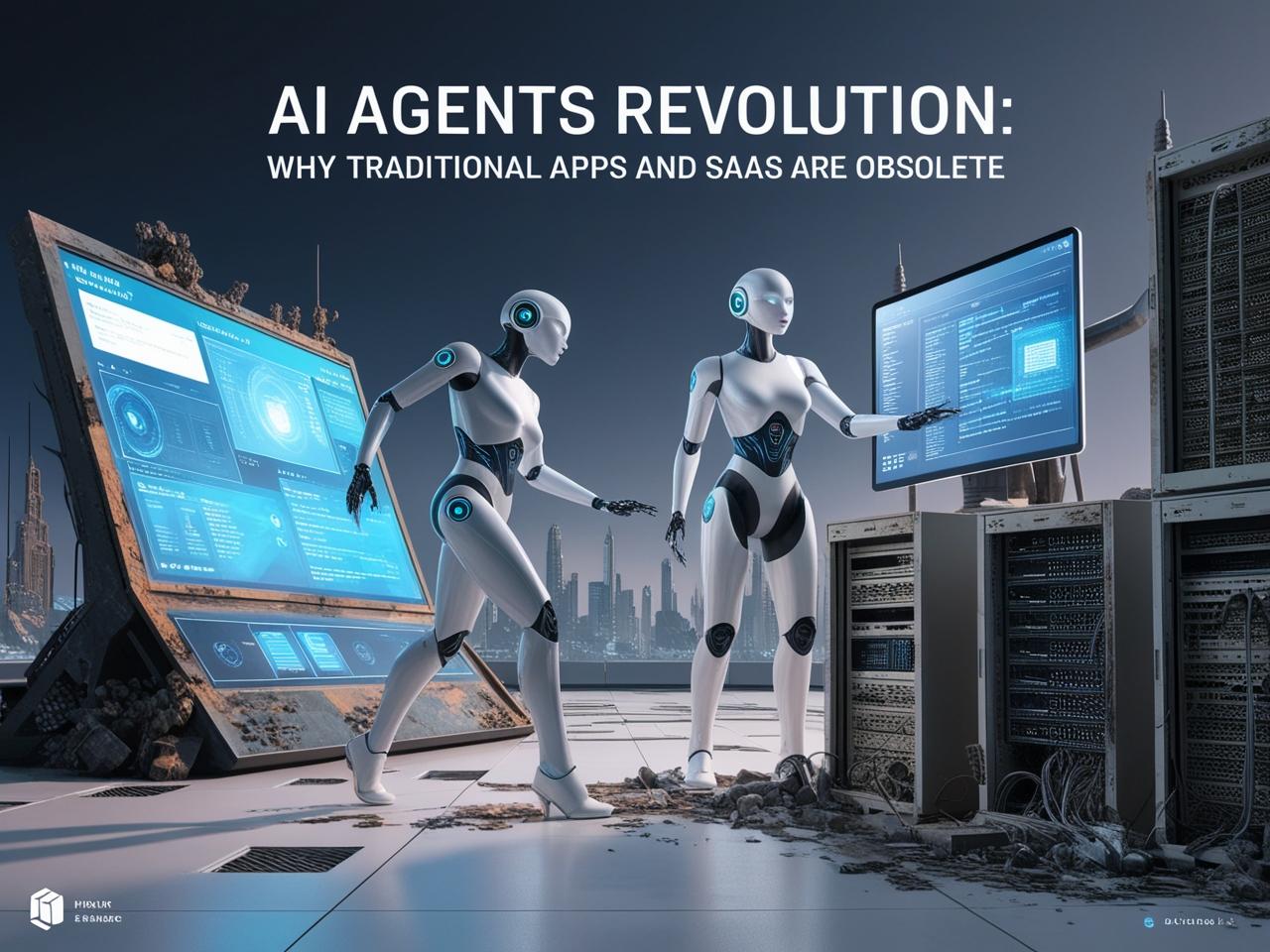The Future of Software: How AI Agents Are Redefining Applications
In a rapidly evolving tech landscape, the way we interact with software is undergoing a seismic shift. Industry leaders predict that traditional software applications, particularly Software as a Service (SaaS), may soon become obsolete, replaced by intelligent AI agents. This transformation promises to streamline business operations, reduce the need for complex application layers, and redefine the role of developers. In this article, we explore the implications of this shift, its impact on the SaaS industry, and what it means for businesses and developers alike.
The End of Traditional Applications: A Bold Prediction

The notion that business applications as we know them could disappear is a bold one. Satya Nadella, CEO of Microsoft, has suggested that the future lies not in traditional apps but in AI agents that interact directly with databases. This perspective challenges the very foundation of the SaaS model, which has dominated the software industry for decades.
At its core, SaaS relies on a user interface (UI) layered over a database, with business logic dictating how data is processed. However, Nadella argues that this structure is inefficient. Instead, AI agents can handle create, read, update, and delete (CRUD) operations directly, eliminating the need for intermediary application layers. This shift could simplify workflows, reduce development costs, and make software more intuitive.
What Are AI Agents?
AI agents are intelligent systems capable of autonomously performing tasks by interacting with data and making decisions based on user instructions. Unlike traditional applications, which require hardcoded business logic, AI agents use natural language processing and machine learning to understand user needs and execute complex tasks. For example:
- A business owner could ask an AI agent to “generate a revenue report for my top five customers” without navigating a CRM dashboard.
- The same agent could draft personalized emails to those customers, schedule follow-ups, and update the database—all in seconds.
This level of automation and flexibility is poised to disrupt industries that rely on rigid software frameworks.
The Collapse of the SaaS Model
The SaaS industry, valued at over $200 billion in 2024, has been a cornerstone of modern business. From CRMs like Salesforce to productivity tools like Microsoft Dynamics, SaaS platforms have enabled companies to scale efficiently. However, the rise of AI agents threatens to upend this model.
Consider a real-world example: a small e-commerce business using a SaaS platform to manage inventory, sales, and customer relationships. Traditionally, this would involve multiple applications, each with its own UI and business logic. With AI agents, the business could maintain a single database and rely on an agent to handle everything from generating sales reports to predicting inventory needs. This not only reduces costs but also eliminates the need for multiple subscriptions.
Why SaaS May Struggle to Survive
The shift to AI agents poses several challenges for the SaaS industry:
| Challenge | Impact |
|---|---|
| Reduced Need for UIs | AI agents interact directly with databases, rendering traditional interfaces obsolete. |
| Simplified Business Logic | Agents can dynamically generate logic, reducing the need for hardcoded rules. |
| Lower Development Costs | Fewer developers are needed to build and maintain complex applications. |
As a result, companies that fail to adapt risk becoming irrelevant. Industry experts predict that only those SaaS providers who integrate AI agents into their offerings will thrive.
The Role of Databases in an Agent-Driven Future

In this new paradigm, the database becomes the heart of software systems. AI agents are agnostic about the backend, meaning they can work with any database—whether it’s SQL, NoSQL, or a cloud-based solution. This flexibility allows businesses to choose databases based on cost, scalability, and performance rather than compatibility with specific applications.
For engineers, the focus shifts from building UIs to optimizing databases for AI interaction. For example, a retail company might choose a lightweight, cloud-native database to store customer data, knowing that an AI agent can handle complex queries and analytics without additional software.
Case Study-backed Insights: Microsoft’s Vision
Microsoft is already paving the way for this future with tools like Copilot, which integrates AI agents into its ecosystem. Copilot can analyze data in Excel, generate reports, and even write Python code to visualize results—all without requiring users to navigate traditional software interfaces. This approach has led to significant wins in Microsoft’s Dynamics backend, particularly in customer service and finance operations.
For instance, a global logistics firm using Microsoft Dynamics reported a 30% reduction in operational costs after implementing AI agents to handle customer inquiries and financial reporting. By collapsing traditional application layers, the firm streamlined its processes and improved efficiency.
The Impact on Developers
The rise of AI agents raises questions about the future of software development. With fewer applications to build, the demand for traditional developers may decline. However, new opportunities will emerge in areas like:
- AI Agent Development: Creating and fine-tuning agents to handle specific business needs.
- Database Optimization: Designing efficient databases to support AI interactions.
- AI Tooling: Building frameworks that allow agents to generate code or integrate with existing systems.
Developers who adapt to these changes will find themselves at the forefront of a new era in software engineering.
Why Excel and Other Tools May Become Obsolete

One of the most striking predictions is that even tools like Excel could become unnecessary. Excel, at its core, is a UI for manipulating data. With AI agents capable of writing Python code to analyze and visualize data, the need for such tools diminishes.
Imagine a marketing analyst who needs a 3D visualization of customer demographics. Instead of spending hours in Excel, they could simply tell an AI agent, “Create a 3D chart of customer age groups by region.” The agent would query the database, write the necessary code, and deliver the visualization in minutes. This level of efficiency could render traditional analytics tools obsolete.
How Businesses Can Prepare for the Agent Era
To stay competitive, businesses must embrace AI agents and rethink their software strategies. Here are actionable steps to prepare:
- Invest in AI Infrastructure: Adopt platforms that support AI agents, such as Microsoft Copilot or open-source alternatives.
- Optimize Databases: Ensure your data is structured for seamless AI interaction.
- Train Teams: Equip employees with skills to work alongside AI agents, focusing on prompt engineering and data analysis.
- Monitor Industry Trends: Stay informed about advancements in AI and database technologies to remain agile.
Frequently Asked Questions (FAQs)
What are AI agents in software development?
AI agents are intelligent systems that autonomously perform tasks by interacting with databases and executing business logic. They eliminate the need for traditional application layers, making software more efficient.
Will SaaS disappear completely?
While SaaS may not vanish entirely, its role will evolve. Companies that integrate AI agents into their platforms are likely to dominate, while traditional SaaS models may struggle to compete.
How can developers adapt to the rise of AI agents?
Developers should focus on skills like AI agent development, database optimization, and building AI-compatible tools to stay relevant in the evolving tech landscape.
Conclusion

The future of software is not about building more applications but about empowering AI agents to interact directly with data. This shift will redefine the SaaS industry, challenge traditional development roles, and transform how businesses operate. By embracing AI agents and optimizing their data infrastructure, companies can position themselves as leaders in this new era. The question is no longer whether this change will happen—it’s how quickly you’ll adapt to it.